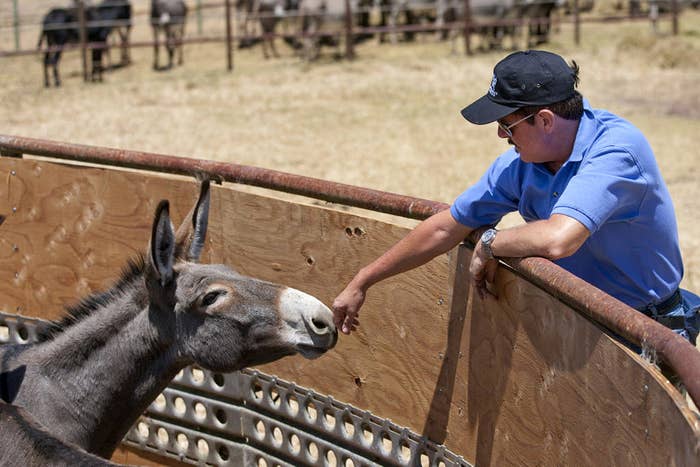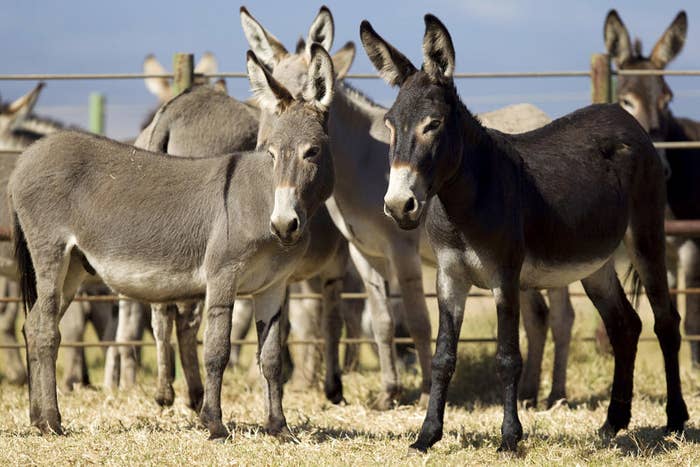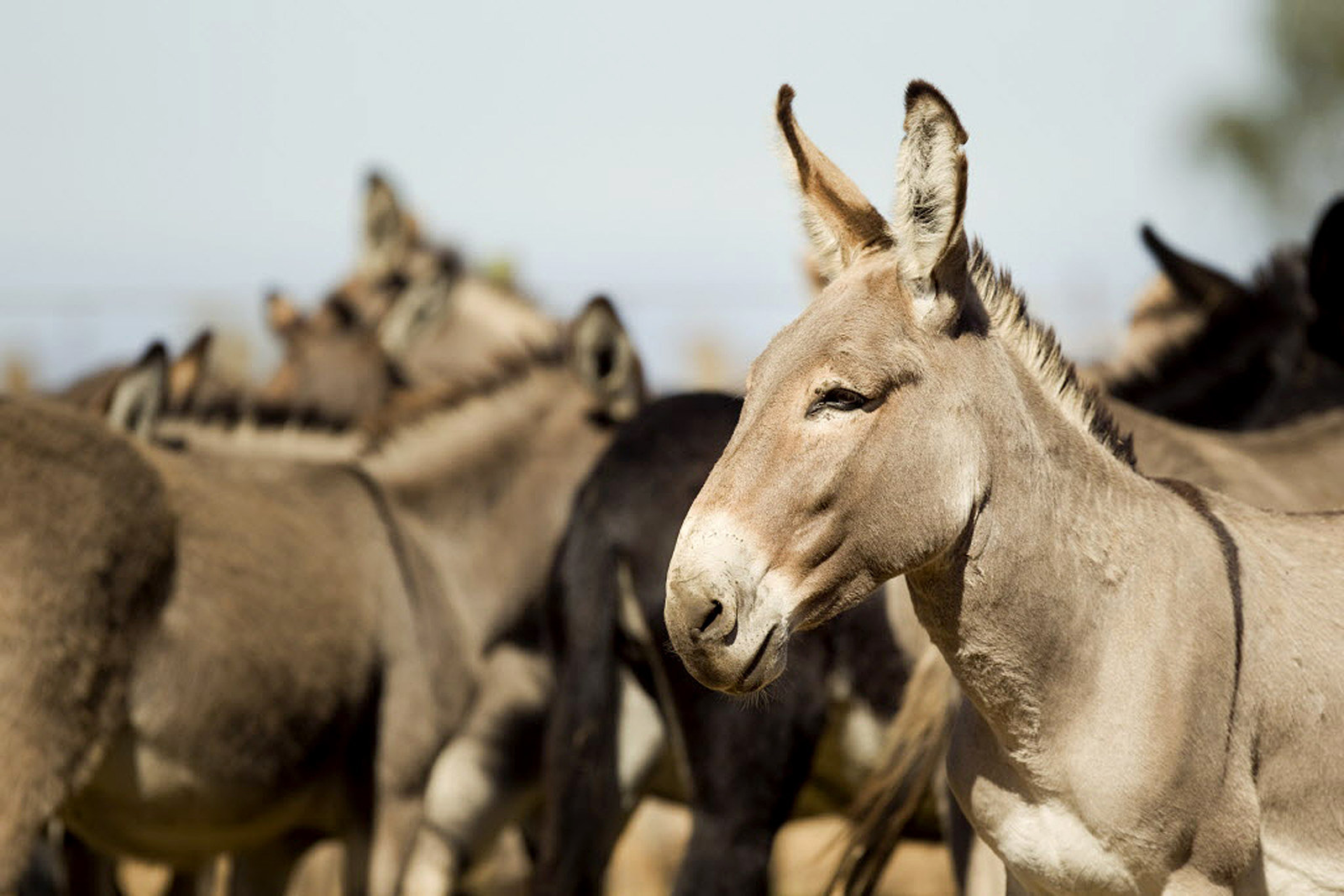
The last of Hawaii's wild donkeys are being rounded up for adoption, capping a years-long effort to relocate them to adoptive homes.
Only about 50 donkeys remain of what was once a 500-strong herd on Hawaii's Big Island, leftovers from early agriculture industries that went unchecked for 40 years because they weren't considered game or endangered animals.
But drought and dwindling resources drove the herd into urban areas in search of water, damaging properties and becoming a road hazard for drivers. And with frustration growing in the local community, the Humane Society of the United States stepped in six years ago to start relocating the donkeys into adoptive homes.

Since then, they've spent about $200,000 to move more than 450 donkeys into adoptive homes, including 120 that were flown to California due to lack of space on the island.
"It was a daunting situation initially, like what are we going to do with 500 feral donkeys?" Inga Gibson, the Humane Society's Hawaii state director, told the Associated Press. "It was really just an amazing community effort, and we didn't receive any kind of government support or funding."

Before adoption, the donkeys get a veterinary check and the males are castrated, which is a less invasive process than spaying the females. Adoptive homes are also screened to ensure there is enough land and that highly social donkeys will be in the company of another animal. If not, they must be adopted in pairs.
"The adoption clause is no lone donkey," Gibson told the AP. "They have to have a friend."
About 70% to 80% of the remaining 50 donkeys have interested homes, she added.
Those interested in adopting can contact the Humane Society here.
